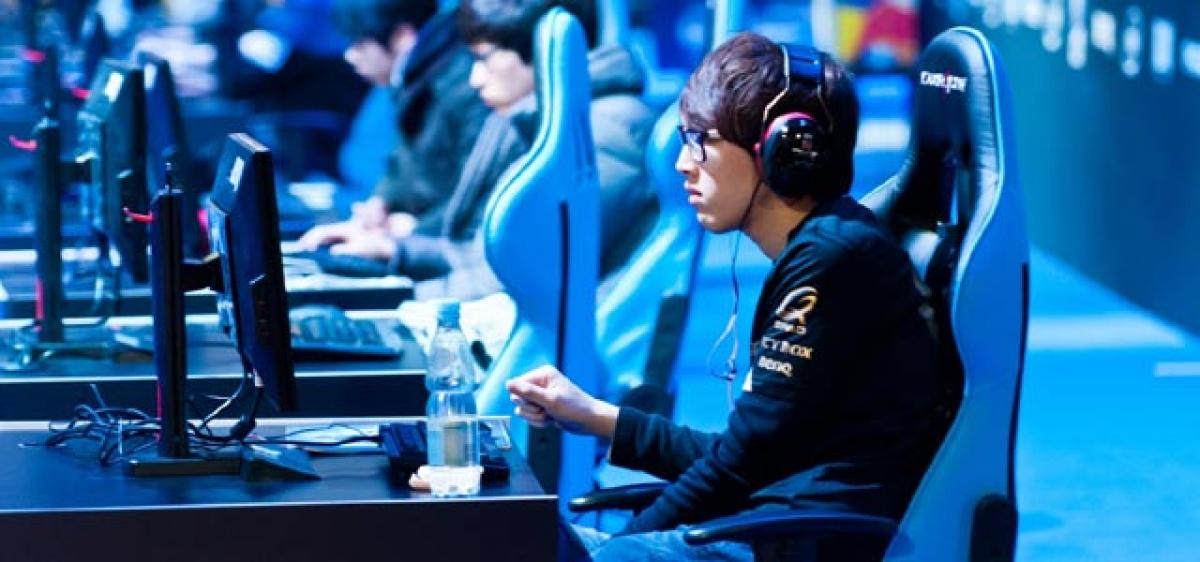Live
- Beware of new cyber scam ‘digital arrest’: SP Subba Rayudu
- Sensex, Nifty slip under pressure amid weak global cues
- Posters on novel solutions to problems at Tech Summit
- Conduct Tiruchanoor fest akin to Tirumala’s: TTD EO
- Allocate Khelo India funds for sports infra in SVU
- BJP stages protests in various dists over alleged Waqf encroachments
- CM defends BPL ration card cancellation
- Industry should make use of Rs 1-trn ANRF fund: Goyal
- TTD chairman meets Telangana CM
- MITS faculty awarded with PhD by VTU
Just In

You can successfully quit out of your favourite online game with much ease as playing internet games has been found not as addictive as gambling, new research has suggested.
You can successfully quit out of your favourite online game with much ease as playing internet games has been found not as addictive as gambling, new research has suggested. The study is the first to measure the scale of gaming addiction in the general population using symptoms of 'internet gaming disorder', which included preoccupation with internet gaming, anxiety and other withdrawal symptoms (if the game was taken away), increasing amounts of time spent gaming, loss of control, reduced interests, social withdrawal, and losing opportunities as a result of gaming.
The findings showed that while many gamers may feel preoccupied and distracted from other responsibilities in a way akin to a sports fan whose team has reached the finals, they are not likely to have a pathological condition unless there are feelings of significant distress. "Internet games are currently one of the most popular leisure activities but we can't leap to conclusions and assume that if 160 million people play them, one million of them might be addicted," said lead author Andrew Przybylski, from the University of Oxford.
"Contrary to what was predicted, the study did not find a clear link between potential addiction and negative effects on health," Przybylski added. For the study, researchers from the University of Oxford surveyed 19,000 men and women from the UK, the US, Canada and Germany. Over half of the sample said they had played internet games recently. Of these, between 2 per cent and 3 per cent reported they had experienced five or more of the symptoms on the list, with between 1 per cent and 0.5 per cent saying they also had feelings of 'significant distress' in being unable to curb their play.
Specific indicators like increasing playtime to increase excitement were reported three times more frequently than other indicators, such as risking social relationships, the researchers observed. However, the great majority of gamers nearly three in four reported no symptoms at all that we would link with addictive gaming behaviour, Przybylski said. These rates are less than half those reported recently for gambling by the British Gambling Prevalence Survey, the researchers noted in the paper published in the American Journal of Psychiatry.

© 2024 Hyderabad Media House Limited/The Hans India. All rights reserved. Powered by hocalwire.com







